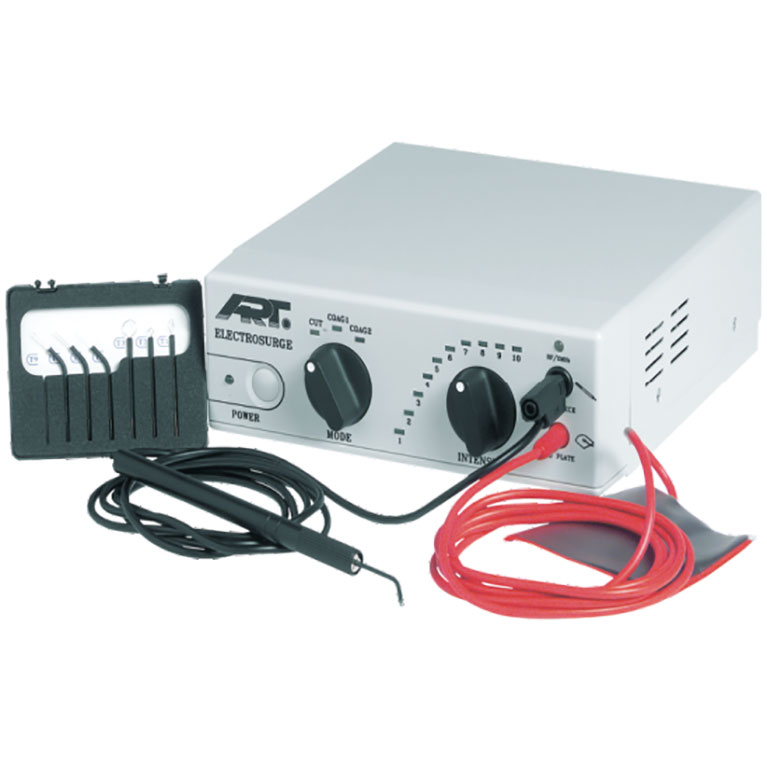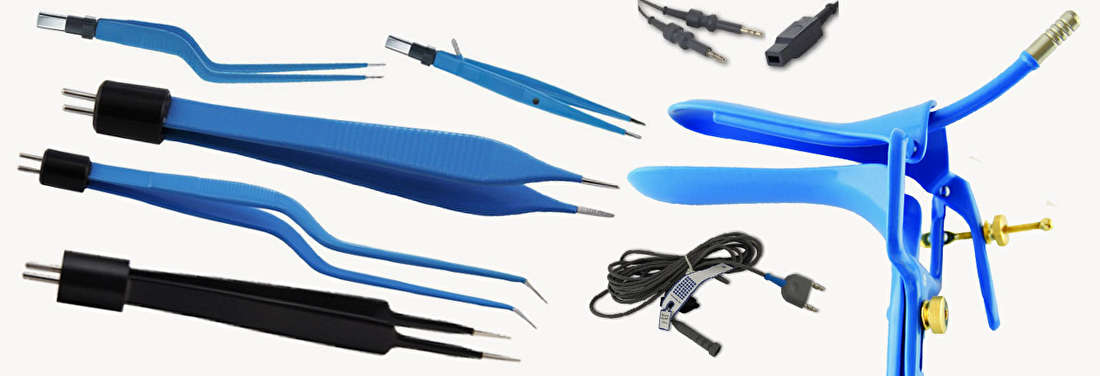No products in the cart.
The Ultimate Guide to Choosing the Right Surgical Manufacturer for Your Medical Practice
Are you searching for the perfect surgical manufacturer for your medical practice? Look no further. In this ultimate guide, we will walk you through the process of choosing the right surgical manufacturer that meets all your needs.
Finding a reliable supplier is crucial for any medical practice. You need high-quality surgical instruments that are durable, efficient, and safe for your patients. The market is saturated with numerous manufacturers, each promising top-notch products and services. But how can you separate the wheat from the chaff?
In this guide, we will provide you with valuable insights and practical tips to help you make an informed decision. From assessing the manufacturer’s reputation to evaluating their product quality and compliance with regulatory standards, we will cover every aspect you need to consider.
Choosing the right surgical manufacturer is vital for the success and growth of your medical practice. So, get ready to explore the world of surgical manufacturers and find the perfect match for your needs. Let’s dive in and make the right choice together.
Importance of choosing the right surgical manufacturer
Finding a reliable supplier is crucial for any medical practice. You need high-quality surgical instruments that are durable, efficient, and safe for your patients. The market is saturated with numerous manufacturers, each promising top-notch products and services. But how can you separate the wheat from the chaff?
Choosing the right surgical manufacturer is vital for the success and growth of your medical practice. By partnering with a reputable and reliable manufacturer, you can ensure that you have access to the latest advancements in surgical technology, maintain a high standard of patient care, and streamline your operations. On the other hand, selecting the wrong manufacturer can lead to wasted time, money, and potential harm to your patients.
Factors to consider when choosing a surgical manufacturer
Before diving into the selection process, it is important to identify the key factors that you should consider when choosing a surgical manufacturer. These factors will vary depending on your specific needs and requirements, but here are some universal aspects to keep in mind:
- Reputation and experience: Research the manufacturer’s reputation in the industry. Look for manufacturers with a solid track record and years of experience in producing surgical instruments. A reputable manufacturer is more likely to provide high-quality products and reliable services.
- Product quality: Assess the quality of the surgical instruments produced by the manufacturer. Look for certifications and accreditations that demonstrate their commitment to quality control and adherence to regulatory standards. High-quality instruments are essential for providing safe and effective patient care.
- Compliance with regulatory standards: Ensure that the manufacturer follows strict regulatory guidelines and complies with industry standards. This includes certifications such as ISO 13485, which ensures that the manufacturer has implemented a robust quality management system.
- Customization and flexibility: Consider whether the manufacturer can accommodate your specific needs and requirements. Some medical practices may require customized surgical instruments or the ability to make modifications to existing designs. A manufacturer that offers customization and flexibility can be a valuable partner.
- Research and development capabilities: Look for a manufacturer that invests in research and development to stay at the forefront of surgical technology. Manufacturers with strong R&D capabilities are more likely to offer innovative products that can give your medical practice a competitive edge.
- Supply chain and inventory management: Evaluate the manufacturer’s supply chain and inventory management processes. Timely delivery of surgical instruments is crucial to ensure uninterrupted operations in your medical practice. A manufacturer with efficient supply chain management can minimize delays and backorders.
- Cost and pricing: Consider your budget and compare the pricing of different manufacturers. While cost should not be the sole determining factor, it is important to find a balance between quality and affordability. Look for manufacturers that offer competitive pricing without compromising on product quality.
Researching and evaluating surgical manufacturers
Now that you have a clear understanding of the factors to consider, it’s time to start researching and evaluating surgical manufacturers. Here are some steps to guide you through the process:
- Online research: Begin by conducting online research to identify potential surgical manufacturers. Visit their websites, read about their products and services, and gather information about their reputation and experience. Look for manufacturers that align with your requirements and have positive customer reviews.
- Industry referrals and recommendations: Reach out to colleagues and industry professionals for referrals and recommendations. They can provide valuable insights based on their firsthand experiences with different manufacturers. Consider attending industry conferences and trade shows to network with professionals and learn about the latest trends in surgical manufacturing.
- Request product samples: Once you have identified a few potential manufacturers, request product samples to assess their quality firsthand. Examine the instruments for durability, ergonomics, and overall performance. This will give you a better understanding of the manufacturer’s capabilities and the suitability of their products for your medical practice.
- Evaluate customer support: Contact the manufacturers and assess their customer support capabilities. Prompt and efficient customer support is essential for resolving any issues or concerns that may arise during the partnership. Ask questions about their support channels, response times, and warranty policies.
- Check for certifications and regulatory compliance: Verify the manufacturer’s certifications and regulatory compliance. Look for certifications such as ISO 13485, CE marking, and FDA registration. These certifications ensure that the manufacturer follows strict quality control processes and adheres to regulatory standards.
Quality and certifications of surgical manufacturers
When it comes to surgical instruments, quality is of utmost importance. As a medical practitioner, you need instruments that are reliable, durable, and safe for your patients. Here are some key aspects to consider when evaluating the quality and certifications of surgical manufacturers:
- ISO 13485 certification: ISO 13485 is an international standard that sets out the requirements for a quality management system specific to the medical device industry. Manufacturers that are ISO 13485 certified have implemented robust quality control processes and are committed to consistently meeting customer and regulatory requirements.
- CE marking: CE marking is a mandatory conformity marking for certain products sold within the European Economic Area (EEA). It indicates that the product complies with the essential health and safety requirements set out in European directives. Manufacturers that have obtained CE marking have met the stringent requirements for product safety and performance.
- FDA registration: If you are based in the United States, ensure that the manufacturer is registered with the U.S. Food and Drug Administration (FDA). FDA registration indicates that the manufacturer has met the FDA’s requirements for quality control and compliance with regulatory standards.
- Material quality and durability: Assess the materials used in the manufacturing of surgical instruments. Look for manufacturers that use high-quality materials that are durable and resistant to corrosion. Surgical instruments should be able to withstand repeated sterilization and maintain their performance over time.
- Product testing and validation: Inquire about the manufacturer’s product testing and validation processes. Manufacturers that conduct rigorous testing and validation ensure that their instruments meet the required standards for functionality, safety, and performance.
Pricing and budget considerations
While quality should be the primary focus when choosing a surgical manufacturer, pricing and budget considerations are also important. Here are some factors to consider when evaluating the pricing of different manufacturers:
- Comparative pricing: Obtain quotes from multiple manufacturers and compare their pricing. However, be cautious of manufacturers that offer significantly lower prices than their competitors. Extremely low pricing may indicate compromises in quality or hidden costs.
- Long-term cost analysis: Consider the long-term costs associated with partnering with a specific manufacturer. This includes factors such as maintenance and repair costs, replacement costs, and the availability of spare parts. A manufacturer that offers durable and reliable instruments may save you money in the long run.
- Discounts and bulk purchasing: Inquire about any discounts or incentives offered by the manufacturer for bulk purchasing. Some manufacturers may provide volume discounts or customized pricing arrangements for loyal customers. Take advantage of these opportunities to optimize your budget.
- Value for money: Evaluate the overall value provided by the manufacturer. While it’s important to find affordable pricing, prioritize value over price alone. A manufacturer that offers high-quality instruments, excellent customer support, and reliable delivery can provide better long-term value for your medical practice.
Delivery and logistics
Timely delivery of surgical instruments is crucial for the smooth functioning of your medical practice. Delayed deliveries can disrupt surgeries, impact patient care, and cause unnecessary stress for your staff. Here are some considerations when evaluating the delivery and logistics capabilities of surgical manufacturers:
- Delivery timeframes: Inquire about the typical delivery timeframes offered by the manufacturer. Look for manufacturers that can deliver instruments within a reasonable timeframe. Consider whether they have multiple distribution centers or international shipping capabilities if your medical practice operates in different locations.
- Order tracking and transparency: Check whether the manufacturer provides order tracking capabilities. Being able to track the status of your orders can provide peace of mind and allow you to plan surgeries and patient appointments accordingly. Transparent communication regarding any delays or issues is also important.
- Packaging and handling: Evaluate the packaging and handling practices of the manufacturer. Surgical instruments should be packed securely to prevent any damage during transit. Additionally, the manufacturer should provide clear instructions for unpacking and handling the instruments to ensure their proper sterilization and use.
- Return policies and warranty: Inquire about the manufacturer’s return policies and warranty coverage. Accidents or damages can occur during transit, and it’s important to have a clear understanding of the manufacturer’s policies for returns, replacements, or repairs. A manufacturer that stands behind their products and offers a comprehensive warranty can provide added peace of mind.
Customer support and after-sales service
Effective customer support and after-sales service are crucial for a successful partnership with a surgical manufacturer. Here are some important aspects to consider when evaluating the customer support and after-sales service capabilities of different manufacturers:
- Response times: Assess the manufacturer’s response times for customer inquiries and support requests. Prompt and efficient communication is essential for resolving any issues or concerns that may arise during the partnership. Look for manufacturers that prioritize customer support and have dedicated support channels.
- Technical support: Inquire about the manufacturer’s technical support capabilities. Surgical instruments can be complex, and it’s important to have access to knowledgeable experts who can assist with any technical questions or concerns. Manufacturers that offer comprehensive technical support can help you maximize the performance and lifespan of your instruments.
- Training and education: Consider whether the manufacturer provides training and education resources for your staff. Proper training ensures that your team is proficient in using the surgical instruments and follows best practices for instrument care and maintenance. Manufacturers that offer training programs or educational materials can be valuable partners.
- Partnership approach: Evaluate the manufacturer’s approach to building long-term partnerships. Look for manufacturers that prioritize customer relationships and are committed to your success. Manufacturers that proactively seek feedback and continuously improve their products and services based on customer input can provide a higher level of support.
Case studies and testimonials of successful partnerships
One of the most effective ways to evaluate the capabilities and performance of a surgical manufacturer is to review case studies and testimonials from other medical practices. Here are some steps to gather valuable insights from successful partnerships:
- Ask for references: Request references from the manufacturer and reach out to other medical practices that have partnered with them. Ask about their experiences, the quality of the instruments, and the level of customer support received. This first-hand information can provide valuable insights and help you make an informed decision.
- Read case studies: Look for case studies or success stories on the manufacturer’s website or other reputable platforms. Case studies highlight the challenges faced by medical practices and how the manufacturer’s instruments and services helped overcome those challenges. These real-life examples can give you a better understanding of the manufacturer’s capabilities and the potential benefits of partnering with them.
- Industry forums and communities: Participate in industry forums and communities to connect with other medical professionals and exchange experiences and recommendations. These platforms provide a wealth of information and allow you to learn from the experiences of others.
Conclusion and final thoughts
Choosing the right surgical manufacturer for your medical practice is a decision that should not be taken lightly. By considering factors such as reputation, product quality, certifications, pricing, delivery, and customer support, you can make an informed decision that aligns with your needs and requirements.
Remember to conduct thorough research, evaluate multiple manufacturers, and gather feedback from other medical professionals. A successful partnership with a reliable surgical manufacturer can enhance patient care, streamline operations, and contribute to the overall success of your medical practice.
Investing time and effort in choosing the right surgical manufacturer is an investment in the future of your medical practice. So, take the time to explore the options available, ask the right questions, and make a decision that will benefit your patients and your practice in the long run.




